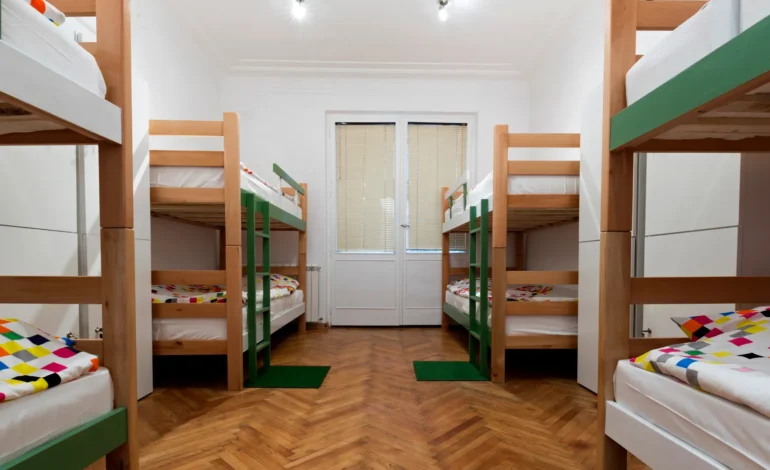Seasonal Work in Poland: Opportunities and What to Expect

Poland, with its burgeoning agricultural sector and expanding tourism industry, has become an increasingly attractive destination for seasonal workers from across Europe and beyond. Images of bountiful harvests and vibrant tourist hotspots paint a rosy picture of readily available opportunities and decent earnings. However, the reality often diverges significantly from the idyllic portrayal. This article aims to dissect the allure of Polish seasonal work, delving into the practicalities, potential pitfalls, and the crucial considerations workers must make before taking the plunge. We will examine the opportunities available, the realities on the ground, the ethical considerations surrounding worker exploitation, and the legal and logistical hurdles involved, ultimately helping potential seasonal workers make informed decisions about whether this path aligns with their long-term goals.
The Allure of Polish Seasonal Work: Is it Truly Worth It?
The initial draw of seasonal work in Poland is often fueled by tales of quick earnings and the promise of experiencing a new culture. For individuals from countries with lower wages, even minimum wage in Poland can seem like a significant improvement, particularly when coupled with the potential for overtime during peak seasons. Furthermore, the relative ease of finding work compared to other Western European nations can be a powerful motivator, especially for those with limited language skills or prior work experience. The seemingly lower cost of living in Poland compared to countries like Germany or France also contributes to the perception of higher potential savings.
However, the allure is frequently superficial. While the numbers may appear favorable on paper, the reality of long working hours, demanding physical labor, and often substandard living conditions can quickly erode the perceived advantages. The savings that workers expect to accumulate are often diminished by unexpected expenses, such as transportation costs, accommodation fees, and the inflated prices charged for essential goods and services in areas heavily populated by seasonal workers. The promise of cultural immersion can also be overshadowed by the isolating nature of the work and the lack of opportunities to truly engage with Polish society.
Therefore, the worth of Polish seasonal work is highly subjective and dependent on individual circumstances and expectations. For those seeking short-term financial gains and willing to endure challenging conditions, it might provide a temporary solution. However, for individuals seeking long-term career development, fair treatment, and a genuine cultural experience, Poland’s seasonal work market may prove to be a disappointing and even exploitative environment. The romanticized notion of easy money and cultural enrichment needs to be tempered with a realistic understanding of the hard realities that await many seasonal workers.
Agricultural Boom & Bust: Examining Seasonal Job Realities
Poland’s agricultural sector is a significant employer of seasonal labor, particularly during the harvest seasons for fruits, vegetables, and other crops. The demand for workers surges during these periods, leading to a temporary boom in job availability. This boom, however, is often followed by a bust, leaving workers jobless and scrambling for alternative income sources once the harvest is complete. The cyclical nature of the work creates inherent instability, making it difficult for workers to plan their finances or secure long-term accommodation.
The reality of these agricultural jobs often involves grueling physical labor, long working hours (often exceeding legal limits), and exposure to harsh weather conditions. Workers are frequently tasked with repetitive and physically demanding tasks, such as picking, sorting, and packing produce, often with minimal breaks and inadequate equipment. The pressure to meet quotas can be intense, leading to increased risk of injuries and exhaustion. The reliance on manual labor, coupled with the seasonal nature of the demand, creates a system where workers are easily replaceable, diminishing their bargaining power and increasing their vulnerability to exploitation.
Furthermore, the agricultural sector often attracts unscrupulous employers who prioritize profit over worker welfare. Instances of wage theft, unfair deductions, and substandard housing are unfortunately common. The remote locations of many farms and the language barriers faced by foreign workers further exacerbate the problem, making it difficult for them to access legal assistance or report abuses. The seemingly abundant job opportunities in the agricultural sector should therefore be viewed with caution, requiring careful due diligence and a realistic assessment of the working conditions and potential risks involved.
Exploitation Concerns: Protecting Workers’ Rights in Poland
One of the most pressing concerns surrounding seasonal work in Poland is the prevalence of worker exploitation. The combination of high demand for labor, a vulnerable workforce, and a lack of effective enforcement of labor laws creates a fertile ground for unethical employers. Exploitation can take many forms, including wage theft, excessive working hours without proper compensation, unsafe working conditions, and substandard housing. The use of informal labor contracts, or even the absence of contracts altogether, further complicates the issue, leaving workers with little recourse in case of disputes.
The vulnerability of seasonal workers is often compounded by their immigration status and language barriers. Many workers are hesitant to report abuses to the authorities for fear of deportation or further retaliation from their employers. The lack of awareness of their rights and the complex legal system in Poland also contribute to their reluctance to seek help. This creates a climate of impunity, allowing unscrupulous employers to operate with little fear of consequence.
Protecting workers’ rights in Poland requires a multi-pronged approach. Strengthening labor law enforcement, increasing awareness among seasonal workers about their rights, and providing access to legal assistance are crucial steps. Furthermore, cracking down on informal labor practices and promoting ethical recruitment agencies can help reduce the risk of exploitation. Ultimately, a collective effort involving government agencies, non-governmental organizations, and employers is needed to ensure that seasonal workers in Poland are treated with dignity and respect and that their rights are fully protected.
Beyond Minimum Wage: Negotiating Fair Compensation Packages
While minimum wage in Poland may seem attractive compared to wages in some countries, it is crucial for seasonal workers to understand the full scope of their compensation package and negotiate for fair terms. Focusing solely on the hourly rate can be misleading, as other factors such as accommodation costs, transportation expenses, and overtime pay can significantly impact the overall earnings. Workers should carefully scrutinize their employment contracts to ensure that all terms and conditions are clearly defined and legally compliant.
Negotiating a fair compensation package involves more than just securing a higher hourly wage. Workers should inquire about overtime pay rates, holiday entitlements, and sick leave policies. They should also clarify whether accommodation and transportation are provided, and if so, what the associated costs are. It is essential to understand how taxes and social security contributions will be deducted from their wages and to ensure that these deductions are calculated correctly. Furthermore, workers should be aware of their rights regarding breaks and rest periods and ensure that these are adequately provided for in their contracts.
Ultimately, successful negotiation requires preparation, knowledge, and assertiveness. Before accepting a job offer, workers should research the average wages for similar positions in Poland and be prepared to negotiate for a rate that reflects their skills and experience. They should also be willing to walk away from offers that are clearly exploitative or that fail to provide adequate compensation for the demands of the job. By taking a proactive approach to negotiating their compensation packages, seasonal workers can significantly improve their financial outcomes and protect themselves from potential exploitation.
Visa Hurdles and Bureaucracy: Navigating the Legal Labyrinth
Obtaining the necessary visas and work permits is a critical aspect of seeking seasonal employment in Poland. The process can be complex and time-consuming, requiring meticulous attention to detail and a thorough understanding of Polish immigration laws. The specific requirements vary depending on the worker’s nationality and the type of work they intend to perform. Navigating this legal labyrinth can be a daunting task, especially for those unfamiliar with the Polish bureaucratic system.
For citizens of the European Union, the process is relatively straightforward, requiring only proof of identity and registration with the local authorities. However, citizens of non-EU countries face a more challenging path, requiring a visa, a work permit, and often a residency permit. The application process can be lengthy and involve multiple stages, including submitting numerous documents, attending interviews, and paying various fees. Any errors or omissions in the application can lead to delays or even rejection of the visa.
To avoid potential pitfalls, it is crucial for prospective seasonal workers to thoroughly research the visa requirements applicable to their situation and to gather all the necessary documentation in advance. Seeking assistance from licensed immigration lawyers or reputable recruitment agencies can also be beneficial. Furthermore, workers should be wary of individuals or organizations offering to expedite the visa process for a fee, as these may be fraudulent schemes. By carefully navigating the legal and bureaucratic hurdles, seasonal workers can ensure that they are legally authorized to work in Poland and avoid potential problems with the authorities.
Long-Term Gains or Short-Term Fix? Weighing the Seasonal Option
The decision to pursue seasonal work in Poland should be carefully considered, weighing the potential benefits against the inherent risks and limitations. While it may offer a short-term solution to financial difficulties or a temporary opportunity to experience a new culture, it is unlikely to provide long-term career development or financial security. The cyclical nature of the work, the often demanding conditions, and the potential for exploitation make it a less attractive option for those seeking sustainable employment and long-term growth.
For individuals with limited skills or qualifications, seasonal work in Poland may provide a stepping stone to other opportunities, but it is essential to approach it with a clear plan and realistic expectations. Focusing on acquiring new skills, improving language proficiency, and building professional networks can help workers transition into more stable and rewarding employment in the long run. It is also crucial to save a portion of their earnings to invest in education or training that can enhance their future prospects.
Ultimately, the value of seasonal work in Poland depends on individual circumstances and goals. For some, it may be a worthwhile temporary solution, while for others, it may be a dead-end job with limited long-term benefits. By carefully weighing the pros and cons and adopting a proactive approach to career development, potential seasonal workers can make informed decisions about whether this path aligns with their long-term aspirations. It is important to remember that seasonal work should be viewed as a means to an end, not an end in itself.
In conclusion, the allure of seasonal work in Poland requires careful scrutiny. While the opportunities are plentiful, the realities on the ground can be challenging and even exploitative. Prospective workers must be diligent in researching employers, understanding their rights, and negotiating fair compensation packages. The legal and bureaucratic hurdles associated with obtaining visas and work permits should not be underestimated. Ultimately, the decision to pursue seasonal work in Poland should be a considered one, weighing the potential short-term gains against the long-term implications for career development and financial security. Only with a realistic understanding of the risks and rewards can individuals make informed choices about whether this path is truly worth pursuing.











